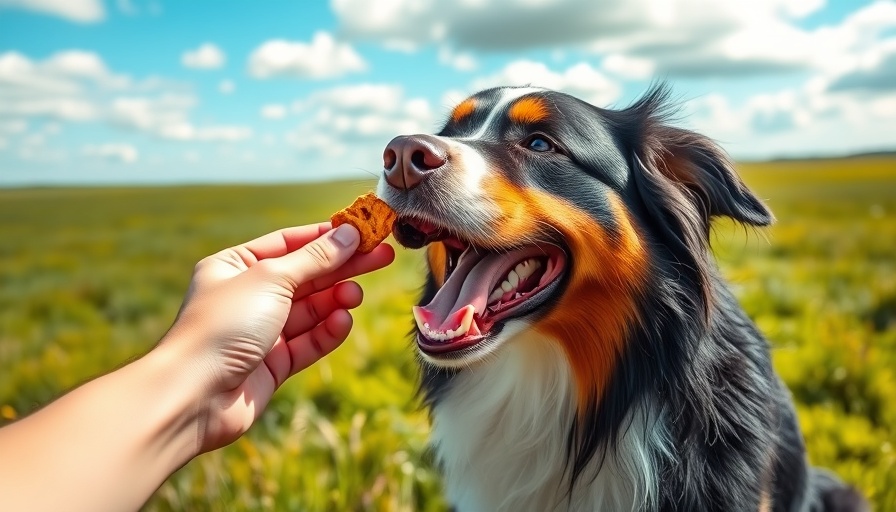
The Dog's Skin: More Than Just a Coat
When it comes to our furry companions, we often think of them as family members, deserving of the best care we can provide. A dog's skin serves as a protective barrier, playing a crucial role akin to our own. Just like humans, dogs can suffer from a range of skin conditions that might indicate underlying health issues. Understanding the correlation between a dog's nutrition and their skin health can unveil solutions to many common problems. This article will explore how the right diet can enhance the skin quality of our beloved pets.
Recognizing the Signs of Skin Issues in Dogs
It’s imperative to identify the signs of skin conditions in dogs early to ensure effective treatment. Dogs often cannot tell us when something is bothering them, so it is up to us to observe for any unusual behaviors or symptoms. Look out for:
- Excessive scratching, licking, or biting at their skin
- Recurrent ear infections, indicating potential allergies or irritants
- Loss of fur in patches or noticeable thinning
- Red, raw patches on the skin, signaling inflammation
- Dull, greasy fur that lacks luster
- Dandruff, which could be a sign of dryness or other conditions
- Hot spots or moist dermatitis caused by licking
- Thickening or darkening of the skin in chronic situations
- Unpleasant skin odor, hinting at infections or other issues
- Gastrointestinal upset, as skin issues may correlate with internal problems
If you notice any of these symptoms in your dog, it’s time to consult a veterinarian who can assess the situation, potentially linking it to their diet.
The Crucial Role of Nutrition
Good nutrition is critical for maintaining healthy skin in dogs. Factors like protein, fatty acids, vitamins, and minerals play vital roles in skin integrity and overall health. Essential fatty acids, such as Omega-3 and Omega-6, contribute to skin hydration and elasticity. However, not all dog foods contain adequate levels of these vital nutrients. It's crucial to select high-quality dog food that includes these elements.
For instance, dog foods that contain fish oil or flaxseed are often rich in Omega-3 fatty acids. They can help reduce inflammation and promote skin healing, addressing the underlying issues that lead to skin conditions. Additionally, ensuring a balanced diet that consists of high-quality proteins supports skin repair and regeneration.
Feeding for Skin Health
When it comes to feeding your dog for optimal skin health, consider the following guidelines:
- **Opt for premium brands:** Look for dog food brands that prioritize organic and high-quality ingredients. These foods are less likely to contain fillers that can irritate a dog's skin.
- **Incorporate Omega-rich supplements:** If your dog's diet lacks fatty acids, consider adding fish oil or plant-based supplements, but consult your vet first.
- **Monitor food intolerances:** Pay attention to your dog’s reaction to certain foods. Allergies to grains, proteins, or preservatives can manifest in skin irritations.
- **Hydrate:** Ensure your dog has constant access to fresh water to maintain hydration from the inside out.
- **Rotate their diet:** Sometimes, switching between different high-quality proteins can help in case a dog develops sensitivities over time.
Taking these steps can help ensure your dog’s skin remains healthy and vibrant.
A Community Approach to Pet Health
As dog owners, it’s essential to work collaboratively with our veterinarians to address nutritional issues linked to skin conditions. Sharing experiences and nutritional strategies with other pet owners in your community can further beneficial insights. Local pet groups, blogs, and forums often discuss their successes regarding diet adjustments, home cooking for pets, or quality brand recommendations. By fostering this sense of community, we're not just improving our pets' health. We are also building valuable connections with fellow dog enthusiasts.
In Conclusion: Take Action for Your Dog's Health
As you explore ways to enhance your dog's health, consider their nutrition as a cornerstone of their overall wellness. By understanding the signs of skin conditions and how to address them through diet, you empower yourself to advocate effectively for your pet. Consult your veterinarian about potential diet changes that could improve your dog's skin health.
Let's ensure our furry friends remain as healthy and happy as possible! If you're considering adjusting your dog’s diet, connect with a vet or a pet nutritionist for tailored recommendations to meet your dog's specific needs.
 Add Row
Add Row  Add
Add 


Write A Comment